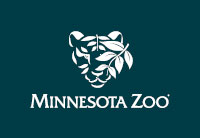We’ve all heard that habitat loss is a problem for wild animals – especially in the Tropics. Sometimes these issues seem so far away, but there are things we can do to help! For the month of February, the Minnesota Zoo is highlighting the importance of sustainable palm oil, and what you can do to help animals that depend on tropical forests – like tapirs, tigers, dholes, and hornbills.
Palm oil is the world’s most widely produced vegetable oil. It is an ingredient in about half of the packaged items you find in most supermarkets – like shampoo, toothpaste, peanut butter, cosmetics and candy bars. Oil palm trees only grow in tropical climates and are highly productive, producing more oil per acre than other crops like canola or soy. The industry also provides jobs for numerous people in some tropical countries, like Indonesia and Malaysia. But the rapid global increase in demand for palm oil has also resulted in habitat loss for endangered species, with millions of acres of tropical forests converted to plantations annually. The good news is that there are ways to produce palm oil responsibly, that don’t involve cutting down rainforests. It’s what is known as “sustainable palm oil”.
Check out our Shop Smart for Palm Oil webpage to learn more! There you can find out how to download a sustainable palm oil shopper app for your smart phone. Start by using it to make an informed purchase for your Valentine’s Day candy, then keep on going – you smart shopper!








Get Social